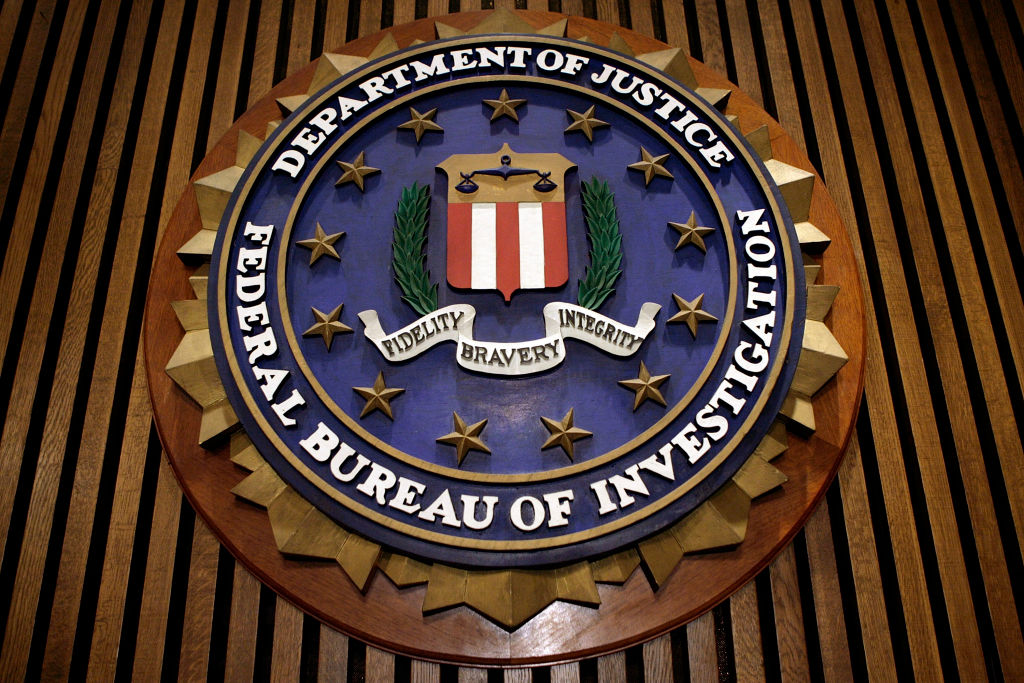Federal judges in California are set to decide whether the FBI illegally confiscated millions of dollars in cash and merchandise during a 2021 raid on a secure storage business even though none of the people who lost their assets to the bureau was ever charged with a crime.
At the time, the FBI was investigating a Beverly Hills-based safety storage company called U.S. Private Vaults that was suspected of laundering drug money, according to Fox News. As part of that operation, the bureau raided the company’s safety deposit box facility.
During that raid, agents broke into every box — no matter who was renting it — and confiscated all the money and property found therein, whether they ended up connected to any drug dealers or not.
Furthermore, not one of the customers of the safety deposit facility was ever charged with a crime. Yet the bureau kept all their money under the oft-abused “civil asset forfeiture” rules.
The FBI walked away with a cool $86 million in property and cash without the first intention of giving any of it back to its rightful — and innocent — owners, the aggrieved citizens say.
On Thursday, a panel of judges from the 9th U.S. Circuit Court of Appeals held a hearing to determine whether the FBI acted legally or violated the Fourth Amendment rights of the customers who lost all their assets without recourse, Fox News reported.
The Fourth Amendment to the Constitution protects Americans against “unreasonable searches and seizures” and is supposed to prevent the government from imposing confiscatory fines and seizures of property.
Also at issue is the Fifth Amendment, which prevents the federal government from depriving a citizen of “life, liberty, or property, without due process of law; nor shall private property be taken for public use, without just compensation.”
The Institute for Justice, a libertarian public interest law firm, said the federal government alone has awarded itself $45.7 billion in confiscated revenue between 2000 and 2019.
“I think the public sees this and recognizes that this is just a total abuse of people’s constitutional rights,” the group’s senior attorney, Rob Johnson, told Fox News.
RedState’s Jeff Charles called such asset seizures “policing for profit.”
U.S. Private Vaults eventually pleaded guilty to money laundering. But none of its regular customers who had money and property stored at the secure facility have been charged in connection to the money laundering care or any other crime. Yet the FBI intended to keep their money and property anyway.
Several of the customers joined forces to sue the FBI for the confiscation of their property and money without being charged with anything.
Plaintiff Don Mellein, a retired 79-year-old government worker, said he lost 110 collectible gold coins in the FBI raid. Another customer, Jeni Pearsons, said she lost around $20,000 in silver and $2,000 in cash. There were dozens of other customers who also lost money.
In its lawsuit, the Institute for Justice supplied proof that the FBI summarily decided to confiscate the contents of every box that contained $5,000 — but never told a judge that it intended to do so when applying for the search warrant on U.S. Private Vaults.
In fact, according to the IJ, the warrant even said the bureau should return the property found in the boxes to their owners.
The paperwork shows that the warrant orders the FBI to open the safety deposit boxes but only to “inspect the contents of the boxes in an effort to identify their owners … so that they can claim their property.” The IJ said it “does not authorize a criminal search or seizure of the contents of the safety deposit boxes.”
The FBI claims it went above and beyond its duty to contact the owners of the boxes. Bureau officials said in court that they taped a flyer on the window of the storage facility telling customers to contact them about the confiscated contents of their safety deposit boxes.
“All they had to do was contact the FBI,” government attorney Victor Rodgers said in court on Thursday.
Since the IJ filed its lawsuit, the bureau has returned some of the property it absconded with after the raid. But Pearsons said she still has not seen the $2,000 in cash she had in the box, according to Fox News.
“It’s been just a long journey to get accountability for this from the government,” storage company customer Travis May added. “Obviously, the journey is not over. But today felt very good to have to see that those concerns are being taken seriously.”
The case may be looking good for the customers of the storage facility. Pearsons, for one, said it felt as if the FBI had been put on its “back foot” during Thursday’s proceedings, adding, “That they were being truly questioned about the morality of what happened … it was a good feeling to be there in court today.”
Four states — Maine, Nebraska, North Carolina and New Mexico — have rescinded their civil asset forfeiture rules, and the U.S. Supreme Court has said it would re-examine the practice.
The appellate judges’ decision is expected in the next few weeks, and those suing the FBI hope they will add to decisions that put limits on the ability of the government to summarily confiscate the property and money of the people.
This article appeared originally on The Western Journal.

























 Continue with Google
Continue with Google